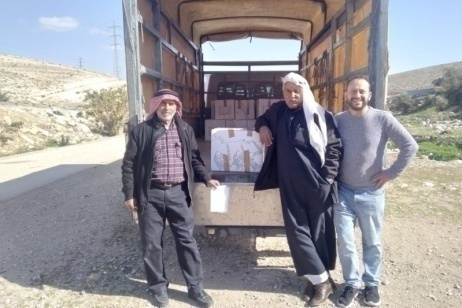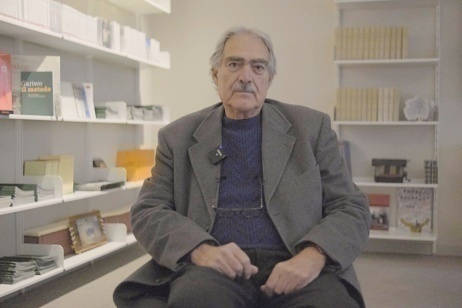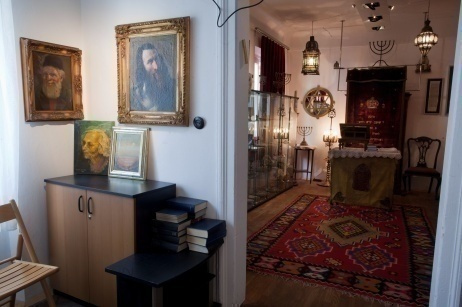
The funeral of some of the victims of the Ankara massacre
On past 10 October, Ankara, the Turkish capital, was the scene of two blasts that hit dozens activists taking part in a peaceful rally summoned by trade unions, social groups and opposition parties, including the pro-Kurdish Peoples’ Democratic Party (Turkish acronym: HDP). The authorities are still investigating, while the death toll seems to amount to 120 deaths and 160 wounded.
We have reached Antonio Ferrari, Corriere della Sera editorialist, to discuss the situation in Turkey, a few days after the elections of 1 November.
What happened in Ankara? What was the rally against?
Last week’s demonstration was a pacifist rally substantially made by young followers of Kurdish party HDP. Precisely this party is Turkey’s great news, not only because it managed to enter the Parliament with a gratifying majority, his propaganda successfully intercepting also the votes of the opposition against Erdogan.
The anti-governmental protest has now lasted for quite long, and it is a mobilisation against episodes of intolerance and brutality that have been made the order of the day. The press has been gagged and fundamental issues are questioned. Here arises the protest.
The blasts of 10 October were targeted to a peaceful march of young democracy enthusiasts. This led me immediately to think of the “strategy of tension” (a pattern of terroristic violence unfortunately common in Italy since the end of the Sixties), i.e. tricks and manipulative power games of democracy foes.
I believe this is what happening now in Turkey, or at least such is the people’s perception. This does not at all mean that Erdogan sent suicide killers, but it shows that the government has not done enough to prevent it, or that it acts o the basis of ambiguous, behind-the-scenes connections. Let us not even forget, in fact, that despite the fact that Turkey has decided to join the international campaign against the Islamic State, instead of fighting the IS it went on shelling the Kurds, with a fundamental ambiguity that this great country does not deserve.
You are right to raise the Kurdish issue. The PKK after the attack proclaimed a unilateral ceasefire, but the Turkish government went on shelling Kurdish targets. What can be the final outcome of such a conflict?
Unfortunately I do not think we can expect anything good, at least until the November elections.
Somebody, including the government, initially tried to suggest that in the Ankara attack it would be possible to see a clash between the radical Kurdish component and the moderate one. I believe this is simply absurd. It is true that PKK has long supported armed struggle, but it is as true that for two years there has been a deal, a sort of a truce, and it was really in PKK’s interest to strengthen the moderate movement, i.e. the one represented by HDP.
Fortunately now even the government itself was compelled to admit that it is not a clash inside the Kurdish component. On the contrary, after the first massacre in Suruc in July and other episodes reported by the moderate Kurdish party leaders themselves, the Ankara massacre hints to a violent score settlement from the side of the of the extreme rightwing of the Sunnite movement.
Such a situation must be reined in, or it can lead to a climate of civil war, and this would be the least desirable outcome in a country at the borders of Syria.
Moreover, we should not forget that we are in a particularly delicate moments: Kurds in fact are the only ones who really fight the Islamic State – not from the air, but on the land – and they are the also only people of nearly 40 millions people who has no State and lives scattered between Syria, Iraq, Iran and Turkey. This is part of the problem, as well, although it was silenced for a long time and could re-emerge now due to this situation.
As you reminded us, on next 1 November Turks are going to be called to the ballots again. What shall we expect from these elections?
I do not believe that for Rogan’s party it will be easy to obtain the two-third majority necessary to change the Constitution and turn the state into a presidential republic. I believe, on the contrary, that AKP will find it difficult even just to obtain the absolute majority, as happened already in the past elections. Erdogan’s hope in the formation of a government lies perhaps in the opportunity to make a deal with the rightwing ultranationalists, who have always been the strongest hardliners against Kurdish irredentism.
Such political insecurity is a new phenomenon for the AKP, the party that stabilised Turkey, to deal with. Not so long ago in fact, Turkey lived years of great economic and political turmoil, like when coups were staged as the military one run by general Evren in the Eighties, the last of the coups that unfolded in the country, or the protests in the Nineties to lead to the fall of the same old corrupted government. After all this, Erdogan’s entry had come to represent a great hope, for with his party he had given back strength and credibility to the country, even though Turkey for this paid a high price in terms of democracy, with the threshold of 10% to access the parliament. Unfortunately though, once he reached the power, the harshness of his personality traits increased instead of easing off, and I think some attitudes of the Turkish President are forms of arrogance that a mature and democratic country cannot easily swallow.
Just a few days ago Erdogan was in Brussels to discuss the migrant issue. Which role does Turkey play and will it play in the future in this game?
Turkey is essential; we know very well that it is one of the three countries – along with Lebanon and Jordan, where the Syrian refugees that had been displaced abroad went to settle.
Moreover, the European change of mind about migrants happened when besides crossing the sea the refugees started to arrive by the land, and precisely from Turkey.
There is also another problem that needs not be overlooked. If in Jordan migrants are Sunni, as the monarchy of king Abdallah is, and in Lebanon the Syrian found a familiar welcome also thanks to the million Lebanese who have relatives in Damascus, in Turkey things are much more difficult.
Here, many Syrians who reached the Turkish border are not Sunni but Alawite; inside Turkey we have a Sunni majority, but also the component of the Alevis, which are connected to Syrian alawites by the way of sectarian ties. It is clear that this movement of the Syrian alawites in Turkey determined an important political situation, which could influence also the Turkish component that is closer to them – let us not forget that alevis are some millions, especially in Istanbul and Izmir. This is why Erdogan’s visit to Brussels has been important, and for the Turkish President a certain sharing of the burden of the migrant issue with the EU is vital.
As you said, talking about Turkey today implies automatically to talk about Syria. In your column Voci dal Vicino Oriente (Voices from the Near East) on CorriereTv you presented the thesis of ambassador Antonio Badini, who argued that Syria might be the possible way out from Mid-Eastern conflicts. What did you mean? Is it really so?
I believe Badini’s proposal is logical, as it is based on the awareness of the need of the various players to act in Syria with the same goal – which is the one to hit the Isis thugs who are viewed as enemies by nearly everybody, despite some ambiguity, and not in a scattered way.
We are faced with a situation which runs the risk of erasing not only Syria as we have always known about it, but also Iraq, not to mention Libya, and to rescue the integrity of this country we must take some realistic steps. I thus believe Badini’s proposal of coordination, a conference that puts all players around the table without any obligations as well as without any veto powers, is a good proposal to find the best solution to this crisis.
I therefore agree with Paolo Mieli, as he wrote in his editorial in the Corriere della Sera that Europe, faced with Stalingrad, did not question the issue of helping the Stalinists to win and resist. We were allied because the enemy was Hitler, and above all we needed to defeat him. And in fact the sooner Nazism was defeated, the sooner the cold war with those two clashing worldviews unfolded. I do not believe this model can be mathematically applied to the Syrian situation with Assad, but sometimes a realistic attitude is essential and to make a choice we need to ponder what the primary goal is.





